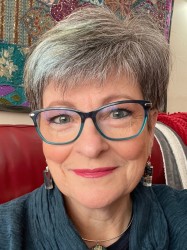BibTex format
@article{Prendecki:2021:10.1136/annrheumdis-2021-220626,
author = {Prendecki, M and Clarke, C and Edwards, H and McIntyre, S and Mortimer, P and Gleeson, S and Martin, P and Thomson, T and Randell, P and Shah, A and Singanayagam, A and Lightstone, L and Cox, A and Kelleher, P and Willicombe, M and McAdoo, SP},
doi = {10.1136/annrheumdis-2021-220626},
journal = {Annals of the Rheumatic Diseases},
pages = {1322--1329},
title = {Humoral and T-cell responses to SARS-CoV-2 vaccination in patients receiving immunosuppression.},
url = {http://dx.doi.org/10.1136/annrheumdis-2021-220626},
volume = {80},
year = {2021}
}

